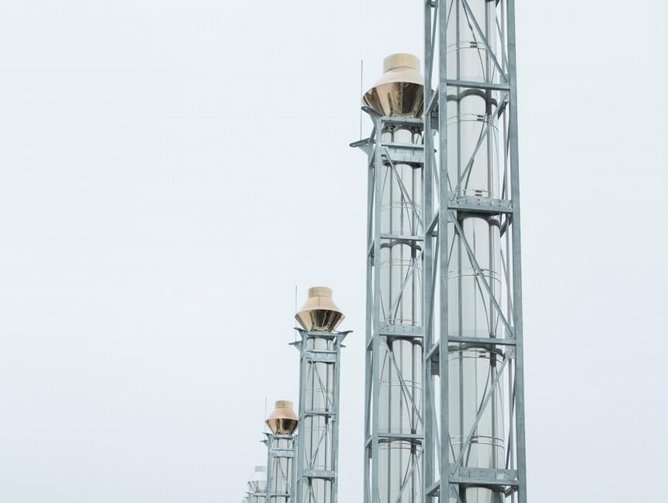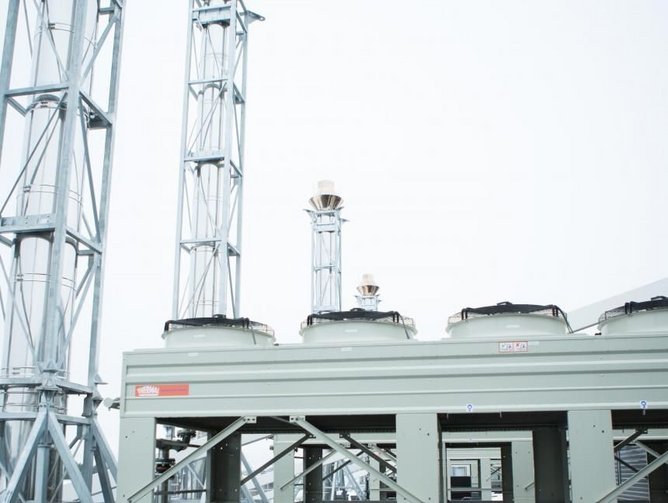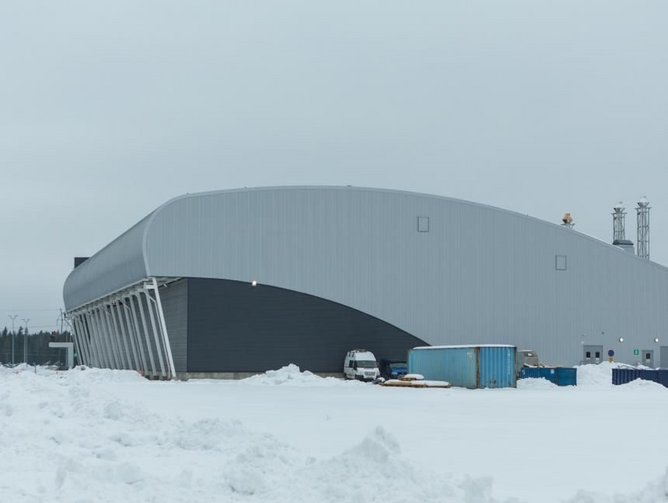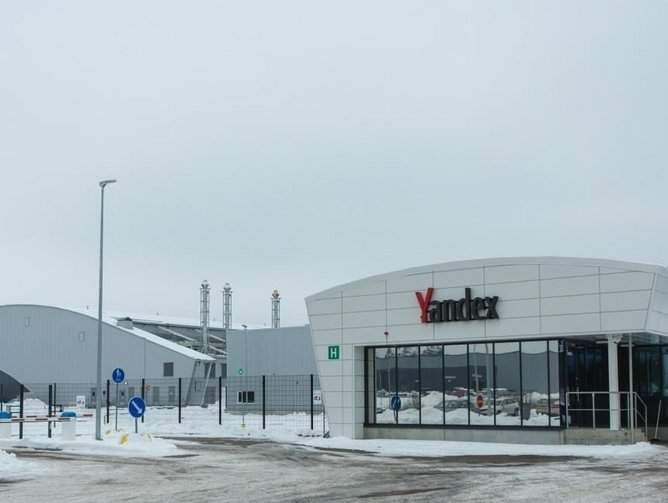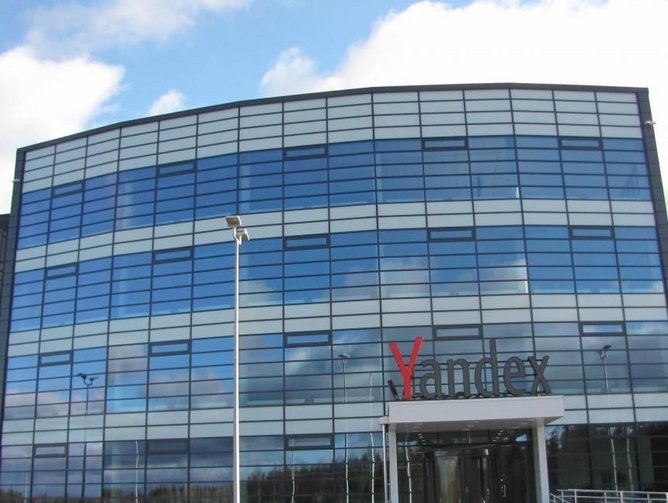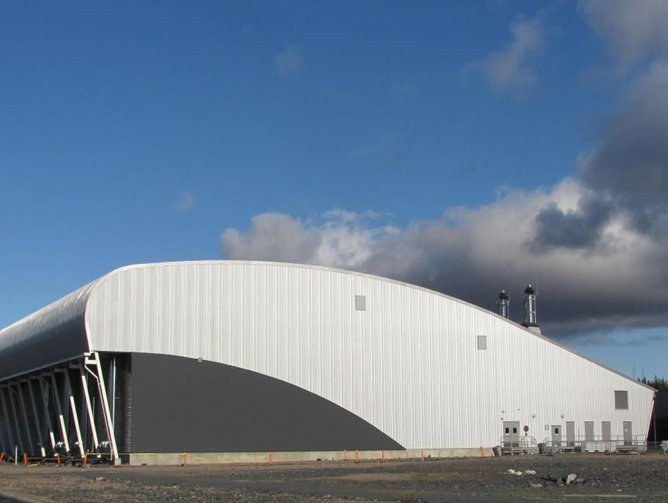How Yandex is heating a Finnish city with its data centre’s surplus energy
Grappling with some of the largest behemoths in the tech industry, in Russia, it’s Yandex which reigns supreme.
Commanding 54% of the market in the region, Yandex owns Russia’s most popular search engine which also stands as the fourth most popular search engine globally – yet that’s not all it offers.
Some 19mn people log into its online marketplace, Yandex.Market every month and its service, Yandex.Taxi accounts for 60% of Moscow’s taxi rides. On top of this, the Russian firm also offers products like translation services, map services, crowdsourcing tools and more.
Right across its portfolio, Yandex strives to make everyday life simple, using data to empower its customers.
Now the Russian web giant is, quite literally, giving power to citizens, with its state-of-the-art data colocation centre in Finland.
Standing proudly in the southern province of Mäntsälä, Yandex’s data centre is a mammoth operation to behold, with five data halls at 500 sqm each.
A sustainable vision
More impressive though, is the fact that this data centre is heating the local district’s water by reusing its waste energy.
“As a dynamic technology company, we want to lead the way and bring new ideas and new innovations to the industry,” explains Ari Kurvi, the firm’s Data Centre Manager. “For us, it’s important to give back to the community and make full use of the excess energy we produce.
“Half of the neighbouring urban city’s needs can be fulfilled by our excess heat which is environmentally very impressive, yet this isn’t just about sustainability as there’s also a very solid business case behind it,” he adds. “Therefore, I think it’s important to show the industry that this is doable and to encourage others to follow our lead.”
Working alongside local Finnish energy company Nivos OY, the Russian web firm has developed a ground-breaking approach to heat production.
The excess heat from Yandex’s data centre is collected and directed through the district heating network to Mäntsälä households.
In doing so, the Finnish city has been able to reduce the price of heating and slash its emissions by 40%.
Energy efficiency realised
The Mäntsälä data centre is built around an inherent need to drive efficiencies and its state-of-the-art district heating solution is a solid reflection of this ethos.
“At the moment, our energy reuse factor is 0.31, which means that 31% of the energy what we take in can be recycled for further use,” notes Kurvi. “We are now embarking on the next phase of this energy reuse installation and through that, we hope to increase our energy reuse factor to around 0.55 or 0.60, which means 60% of our energy will be reused.”
Sustainability has become a huge talking point in the data centre landscape, as the facilities are leveraging increasingly more energy. In an alarming report by Climate Change News, the outlet suggested that the communications industry could consume one-fifth of global electricity by 2025.
This is something which Yandex is taking seriously and it has many more sustainability initiatives under its sleeve.
Unique cooling design
The firm’s Finnish data centre not only boasts a trailblazing heating system, it also has been meticulously designed by engineering firm Royal Haskoning.
With a distinguishing aeroplane wing shape, the Mäntsälä data centre has an efficient air-cooling system, which Kurvi says is integral to its energy-efficient standing.
“By designing the building in the shape of an aeroplane wing and facing it towards the nominal wind direction, it creates a little bit of under pressure behind of the building where the exhaust area is,” says Kurvi. “This will also reduce the need for energy for fans on those days when it's windy.
“In a similar vein, the building was designed so that all its interior lights are LED lights, which keeps energy consumption low overall and this is one of the reasons we are best-in-class,” he adds.
All of this has culminated to help Yandex achieve a power usage effectiveness (PUE) of 1.15 for the whole site including office buildings, one of the most efficient ratings in the sector.
An ideal location
The Nordic data centre is just one of over 10 data centres that the Russian firm has across the globe and the choice of location was by no means accidental.
“There are many reasons why Yandex felt Finland was a good choice,” reflects Kurvi. “The power quality is very good, the cost of electricity is better than some other western countries, there’s a good availability of skilled labour, and the region’s strong fibre connectivity is also very important.
“We use direct air-cooling in almost every data centre we have and, in this respect, the Finnish climate and clean air quality make this location optimal as there is cold, clean air available for cooling purposes.
“As well as this, the local energy company was very willing to cooperate with us and build this ground-breaking new approach to heat production,” he adds.
“In this region, they’ve already lowered the district heat price by 10% because they can reuse our excess heat. In this way, we have a very good citizenship approach. I think we are very well-known and well-accepted here because of this.”
Operational excellence
Like any data centre, operational excellence is at the heart of the Mäntsälä data centre and now, as the company’s data consumption and size swells, Kurvi says that there will undoubtedly be more data centres in the pipeline and, as the industry grows, he says tech companies have a civic responsibility to uphold the highest sustainability standards.
“Yandex is growing fast and the demand for data centres is growing. I think we will expand the site or create a new one within the next two to three years or so,” notes Kurvi.
“On top of this, we’re also promoting operational excellence and maintaining the site so it stays in excellent shape. Of course, as any company, we are also reducing costs wherever we can electricity-wise by selling more waste energy and trying to be as energy-efficient as we can,” he continues.
“We are managing our own IT hardware design and combining that with energy-efficient ventilation and cooling to be the top-class data centre in the world – that's where our concentration is at the moment.”
Strong industry ties
‘No man is an island’, and the same can often be said about business. In the ever-evolving tech industry, new innovations are emerging every other day. Therefore, the right collaboration could set you miles ahead of a competitor and arguably no one understands this better than Yandex,
“The business development unit in this municipality is one of the biggest reasons why Yandex decided to switch on its data centre in Mäntsälä,” says Kurvi. “They take care of our needs as well as our future plans and improvement plans.
“One of our key partners has been MYK Oy, we’ve worked with them a lot to see how we can help the municipality grow, and bring new companies to the city, and in turn, we’re also enhancing our level of services.
“Another key player is a company called Calefa Oy, who has delivered the heat reuse system for us,” he adds. “Together we have innovated and built the whole concept and they've also provided all the necessary equipment and heat pump solutions. They have been very open-minded and also have really helped us improve our sustainability.”
100% uptime
Although the firm is embarking on an ambitious sustainability drive, Yandex hasn’t forgotten the core objective of its data centre – to ensure that European projects by Yandex Data Factory, its machine learning and big data division, run consistently, without interruption.
Today, ensuring the uptime of mission-critical operations is more important than ever with data centre downtime costing around $8,000 per minute, according to an in-depth study by the Emerson Network Power and the Ponemon Institute. Therefore, 100% uptime isn’t just a whim, it’s a necessity.
“We have a lot of backup power generation onsite and have power reserves in case of emergencies,” Kurvi notes. “We also have an agreement with the Finnish national grid so they ensure the grid is stable.
“It’s very important because we need to make sure we have 100% uptime for the company,” he adds.
Since 1997, Yandex has delivered market-leading information services with over 53mn users logging into its services every month. The Russian web giant is presently one of Europe’s largest internet businesses and it expects sales growth to accelerate this year, forecasting that its consolidated revenue will be between 25-30% in 2018.
With such imminent growth on the horizon, Kurvi is optimistic about the firm’s future, and the example it will continue to set in the data centre industry.
“Where do I see Yandex in five years?” reflects Kurvi. “I hope that the Mäntsälä data centre will have doubled or tripled in size from what we are today. I would like to see us stand as one of the world’s most ecological and best-driven data centres from both a sustainability and operations perspective. I hope that our downtime will remain 0% and uptime 100%.”
“Yandex is a very technical and competent company when it comes to designing and operating data centres. We are very innovative and we’re going in a direction where no one else has been. In that sense, we want to be known as a leading technology company and a leading data centre business.”
